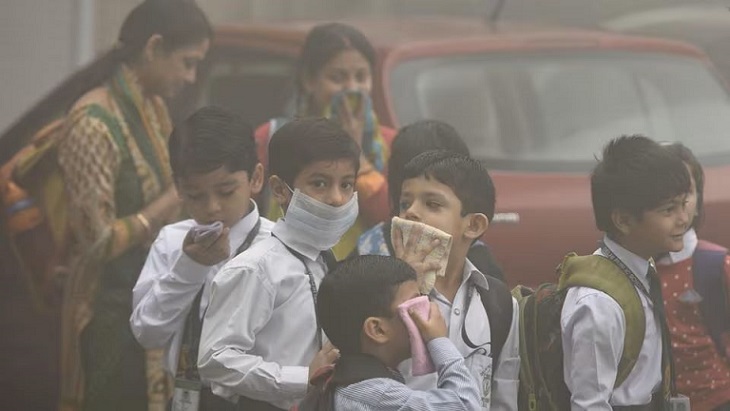Authorities in the Indian capital of Delhi shut all primary schools for two days amid worsening levels of air pollution.
Scientists say air quality in the city dropped to severe levels for the first time this season and is expected to deteriorate further in the next two weeks. Delhi's environment minister has called an emergency meeting to review the situation.
The capital is one of the world's most polluted cities as its air turns especially toxic in winter due to various factors, including burning of crop remains by farmers, low wind speeds and bursting of firecrackers during festivals. Dehi's air pollution peaks from 1-15 November when the number of stubble burning incidents in the neighbouring states of Punjab and Haryana increase, studies by the Delhi Pollution Control Committee showed.
The recent concentration of PM2.5 - fine particulate matter that can clog lungs and cause a host of diseases - exceeded the safe limit of 60 micrograms per cubic metre by a seven to eight times in several parts of the city and its suburbs, according to government data. Delhi Chief Minister Arvind Kejriwal announced that all government and private primary schools in the city would remain closed on Friday and Saturday.
As part of the third phase of its Graded Response Action Plan to combat effects of increased pollution, a central pollution control panel ordered an immediate ban on non-essential construction work in the city. In the second phase implemented last week, all public transport services, including the Delhi metro and electric bus services, had been instructed to increase their frequency to curb vehicle emissions.
Last month, the Delhi government put in place a comprehensive ban on the manufacture, sale, and use of firecrackers within the city. The practice has been in place for the last three years. Polluted air causes severe health issues to Delhi residents every year.
Health professionals are reporting increasing cases of asthma and lung issues among children and the elderly because of the worsening air quality.
Jugal Kishore, the head of the medicine department at the city's Safdarjung Hospital, said: "We are recording a surge in the number of irritative bronchitis infections." He recommended people suffering from respiratory issues not go out in the open unless absolutely necessary.











